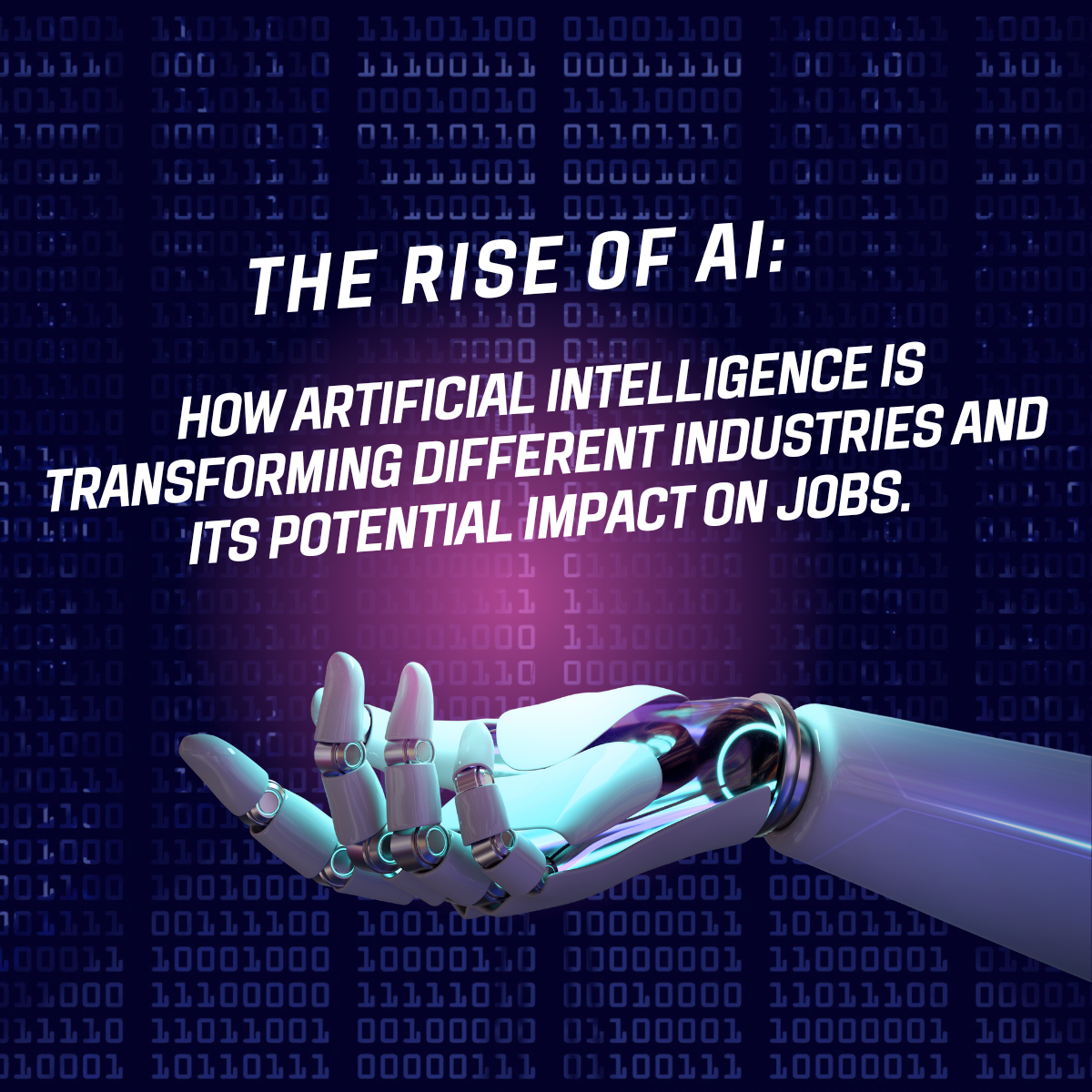
Artificial intelligence (AI) is rapidly transforming industries across the board, from manufacturing and healthcare to finance and customer service. Here’s a glimpse into AI’s impact:
Increased Efficiency and Productivity: AI automates repetitive tasks, allowing human workers to focus on more complex areas. This can significantly boost efficiency and productivity in various sectors.
Enhanced Decision-Making: AI algorithms can analyze vast amounts of data to identify patterns and trends that humans might miss. This empowers businesses to make data-driven decisions that improve outcomes.
Innovation and New Products: AI is fueling innovation by assisting in areas like product design, drug discovery, and material science. This is leading to the development of new products and services that were previously unimaginable.
AI’s Impact on Jobs
While AI automates tasks, it’s also creating new job opportunities. The focus is shifting towards roles that require human skills like creativity, critical thinking, and problem-solving. Here’s how the job market might evolve:
Job displacement: Some jobs with repetitive tasks might be automated. However, this can be offset by the creation of new positions in areas like AI development, data analysis, and cybersecurity.
Job reskilling: Workers may need to adapt and acquire new skills to complement AI and work alongside intelligent machines.
Evolving job roles: AI will likely augment many existing jobs, with humans and machines working collaboratively. This may require workers to develop new skillsets to thrive in this evolving landscape.
The rise of AI presents both challenges and opportunities for the job market. By embracing continuous learning and upskilling, individuals can prepare for the future of work and navigate this exciting era of AI transformation.






